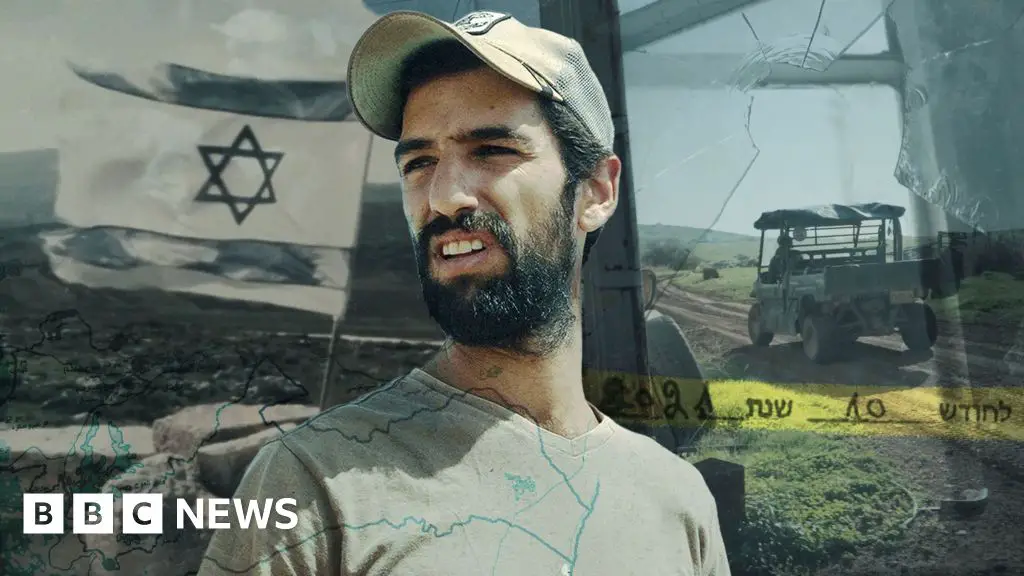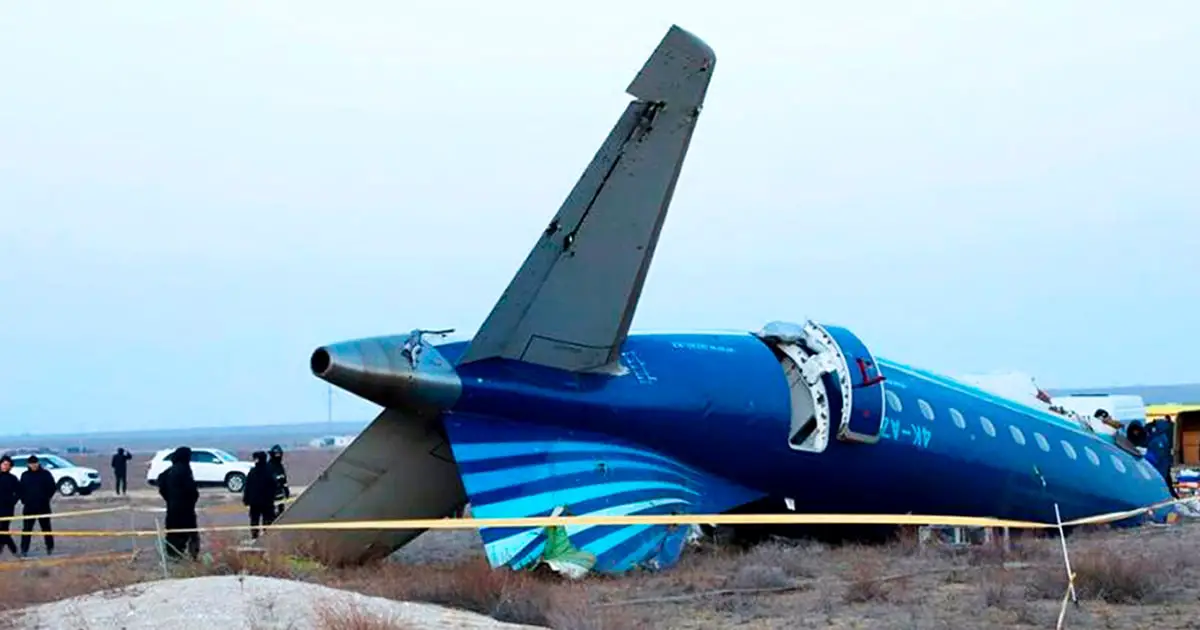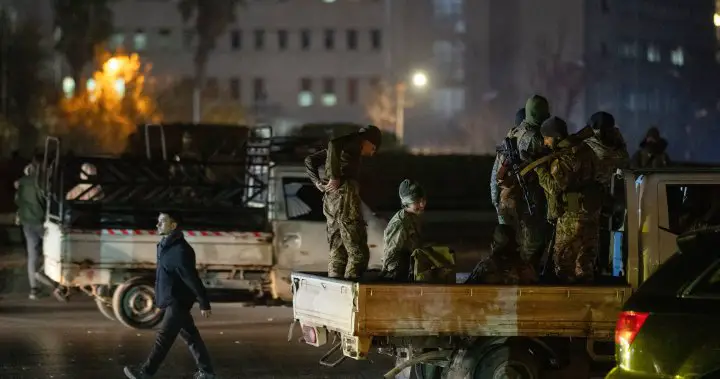
Through limiting access to grazing land, outpost settlers like Moshe Sharvit are able to put Palestinian farmers in increasingly precarious positions, says Moayad Shaaban, the head of the Palestinian Authority’s Colonization and Wall Resistance Commission.
“It reaches a point where Palestinians don’t have anything anymore. They can’t eat, they can’t graze, can’t get water,” he says.
Following the 7 October Hamas attacks on southern Israel and Israel’s war in Gaza, Moshe Sharvit’s harassment became even more aggressive, says Ariel Moran, who supports Palestinian communities facing settler aggression.
Sharvit had always carried a pistol with him in the fields, but now he began approaching activists and Palestinians with an assault rifle slung over his shoulder and his threats became more menacing, Ariel says.
“I think he saw the chance of taking a shortcut and not waiting for another year or two years of gradually wearing them [Palestinian families] out.
“Just do it overnight. And it worked.”
Many of the families, like Ayesha’s, who say they left their homes following threats from Moshe Sharvit, did so in the weeks immediately following 7 October.
Throughout the West Bank, OCHA – the UN Office for the Coordination of Humanitarian Affairs – says settler violence has reached “unprecedented levels”.
In the past 10 months, it has recorded more than 1,100 settler attacks against Palestinians. At least 10 Palestinians have been killed and more than 230 injured by settlers since 7 October, it says.
At least five settlers have been killed and at least 17 injured by Palestinians in the West Bank over the same time frame, OCHA says.






